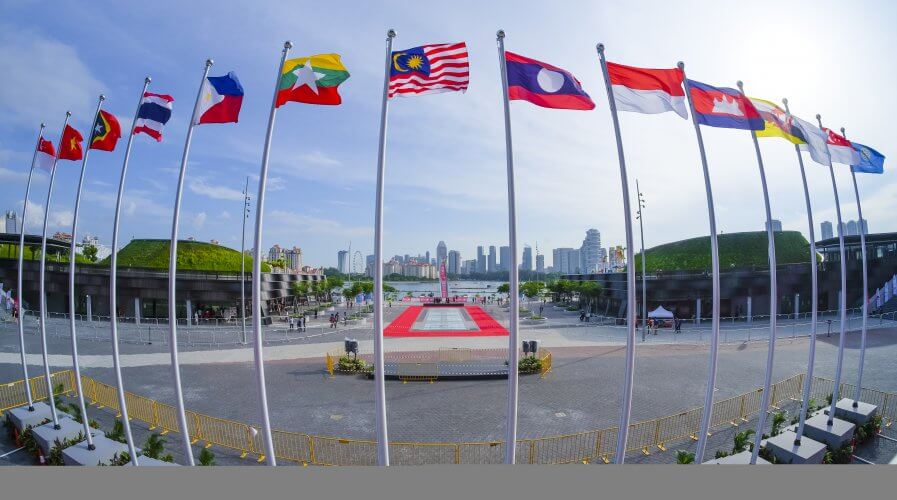
Some experts believe that the onus is on the governments to promote the use and establish the appropriate frameworks to drive blockchain based tech applications. Source: Shutterstock
What can APAC countries learn from EU’s call for blockchain adoption?
BLOCKCHAIN, as a decentralized public transaction ledger has been theorized and explored for utilization beyond cryptocurrencies to bring about positive solutions to some of the world’s biggest problems.
And while enterprises have been talking about blockchain for years now, there’s hardly any real-world enterprise-driven blockchain-first solutions out there.
The complex nature of the technology and the lack of understanding of the value it brings to an enterprise could be among the reasons for the slow adoption. Some experts believe that the onus is on the governments to promote the use and establish the appropriate frameworks to drive blockchain based tech applications.
In the European Union (EU), the European Parliament (EP) seems to have heard the experts and called for measures to boost the integration of blockchain technology in trade in a provisional resolution published recently.
The resolution, Blockchain: A Forward-Looking Trade Policy is a document that recognizes blockchain technology as “a private, permissioned, distributed ledger technology (DLT)” and “various case studies and industries will derive different utility from a mixture of private/public, permissioned/permissionless blockchains.”
Towards a blockchain-powered global trade
Among other things, the EP acknowledged that the technology, though still in its nascency, could improve EU’s trade policies — free trade and mutual recognition agreements — as blockchain enables increased supply chain transparency, streamline current trade practices, minimize cost and chances or corruption and enhance data security.
Blockchain, according to the legislative body is still evolving in the international trade space, and thus, it requires an innovation-friendly and enabling environment without any legal uncertainty.
All parties involved in trade both public or private would have access to a permanent, time-stamped database holding transaction documents with blockchain technology which will help build trust and ease compliance validation, as proven by some regions of the EU that have already developed and adopted the technology.
Ensuring compliance and global standards
Beyond that, the EP recognizes that cross-border data flow is a crucial element of international trade which can be made seamless via blockchain.
However, this could pose a challenge to implement the GDPR — a regulation in EU law on data protection and privacy for all individuals within the European Union and the European Economic Area.
The EP also stressed that any blockchain powered solution has to be developed with global interoperability standards in order to allow transactions across borders and along different blockchains within a supply chain.
Perhaps most importantly, the EP also called for the European Commission to come up with guidelines for blockchain applications for international trade and form a blockchain advisory committee within the commission.
“The EU has an opportunity to become a leading actor in the field of blockchain and international trade, and that it should be an influential actor in shaping its development globally, together with international partners,” the resolution read.
Key takeaways for APAC
In the Asia Pacific region, development and adoption of blockchain technology have been primarily focused in the fintech space, and certain countries that are more mature in the digital journey such as Singapore has started implementing the technology in other areas.
While individual countries are leading their blockchain initiatives in various industries, what lacks is a regional collaboration with a standard guideline to unlock a broader adoption.
First, the nations in the region have to establish a robust framework — which takes into account unique regional challenges and regulations- that could serve as a basis for the development of blockchain technology.
The regional trade forum Asia-Pacific Economic Cooperation (APEC) has already been pursuing digital interoperability solutions between its member economies.
However, the organization has to be even more proactive in enabling collaborations between its member nations to develop robust blockchain based solutions.
While initiatives spearheaded by individual governments will without a doubt drive the technology’s adoption in the coming years, the key to unleashing the real potential of blockchain is still common regional framework and a joint effort between economies.
READ MORE
- The criticality of endpoint management in cybersecurity and operations
- Ethical AI: The renewed importance of safeguarding data and customer privacy in Generative AI applications
- How Japan balances AI-driven opportunities with cybersecurity needs
- Deploying SASE: Benchmarking your approach
- Insurance everywhere all at once: the digital transformation of the APAC insurance industry






